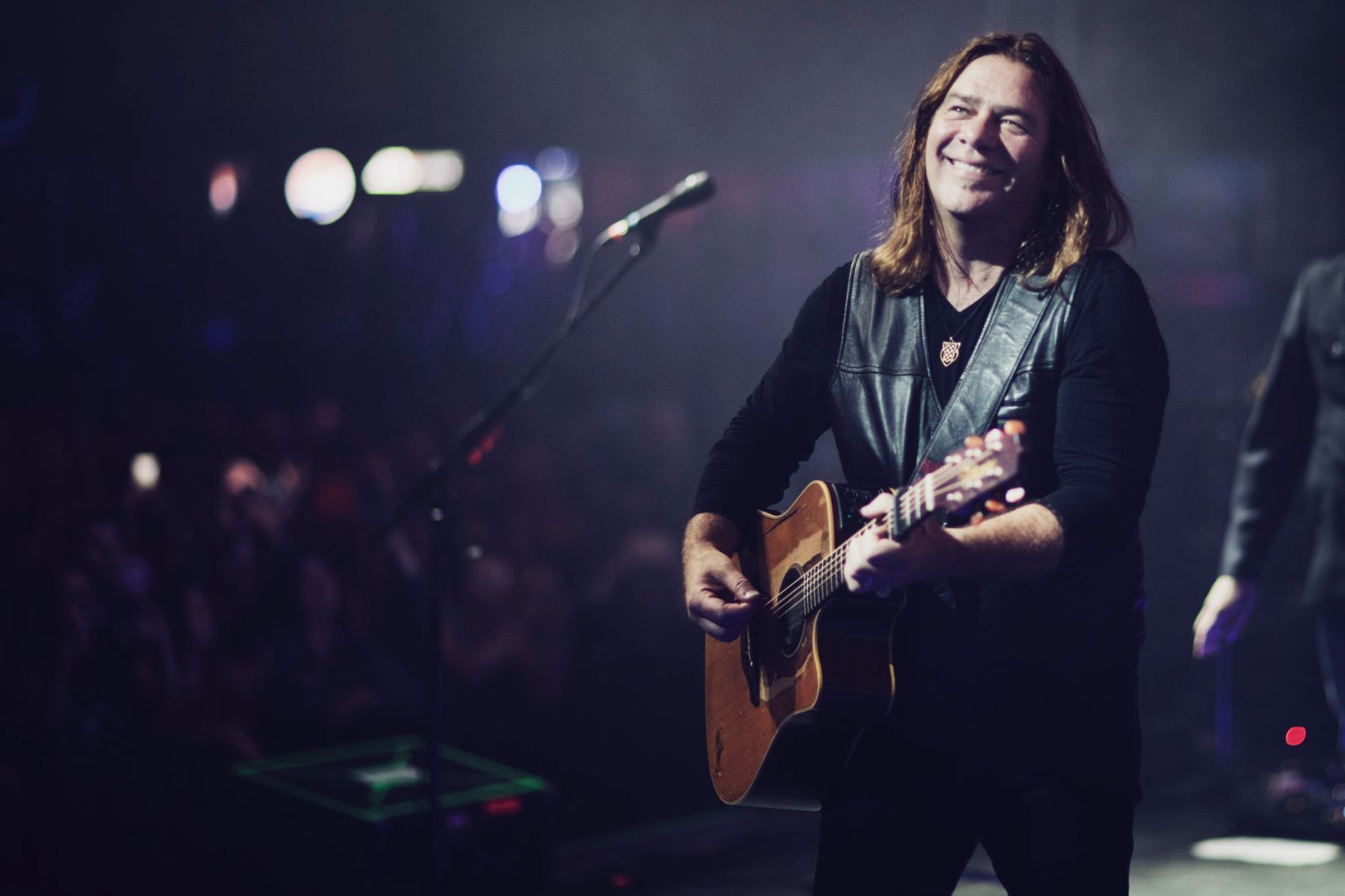
In Conversation with Alan Doyle
Alan Doyle may be the hardest working man in show business. It has been over two years since the Covid-19 pandemic virtually decimated the entertainment industry. After such a lengthy layoff, one could understand if an artist’s creative output had suffered, but the former Great Big Sea frontman appears to have been invigorated by the pages of an empty calendar.
In these two years alone, Doyle has released two EPs, the collaborative Songs From Home and his own Back to the Harbour, and a live album, Here Tonight, published the book, All Together Now, toured Eastern Canada, performed with Blue Rodeo, wrote original music for the CBC television series, Son of a Critch, gone back to the studio to work on a tribute to the late Ron Hynes, and has written the music for and preparing to star in the new play, Tell Tale Harbour, set to debut at the famed Charlottetown Festival.
We sat down with the famed frontman for a conversation on live music, what makes a great band, and his upcoming theatrical debut.
The Collection: You’re currently in the studio, what are you working on?
Alan Doyle: Do you know the songwriter, Ron Hynes? Ron was a hero to our community, who passed away too young. So, a bunch of us are working on this 20-song, 20-band retrospective. It’s been really fun. I literally recorded the Saint John’s Waltz right where I’m sitting two days ago, looking out over this harbour.
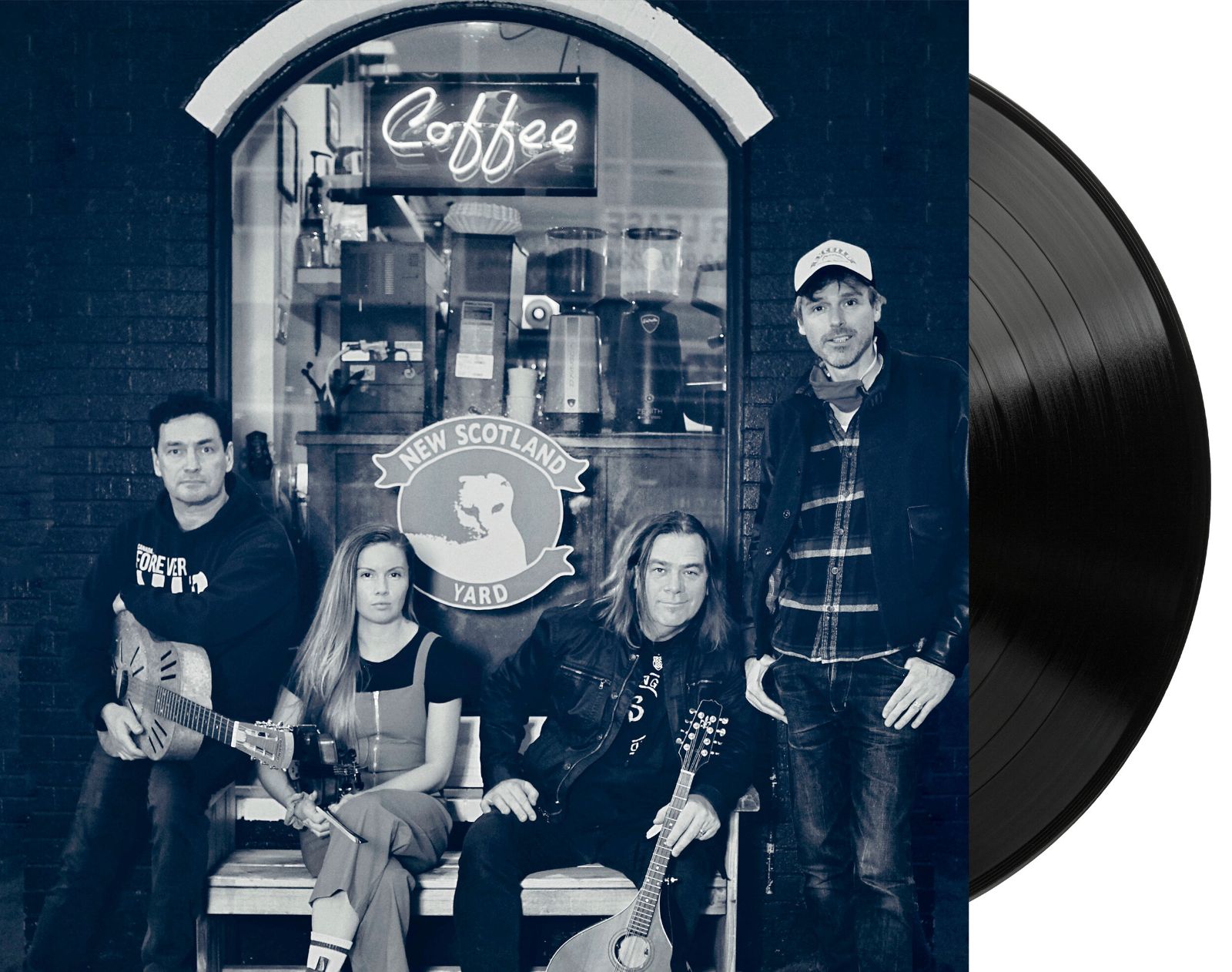
TC: You’ve had a very productive couple years. Where do you get the energy?
AD: I love to work and participate in fun projects. The pandemic, of course, took away the thing we love to do the most (tour), which we do a hundred times most years, so that left me with a lot of spare time. Nothing terrifies me like a blank calendar. I also worried about my friends who were very quickly unemployed. So, I wanted to see if I could kickstart collaborative things like the Songs from Home record, or my little tour that we did around Canada, and that EP, Back to the Harbour, which we did at Joel Plaskett’s. This Ron Hynes project, 20 different bands are playing on it. So, I put my mind to things I could do to occupy myself, but also things I could do to help my pals who weren’t going to get a gig for what we assumed would be six weeks and ended up being two years.
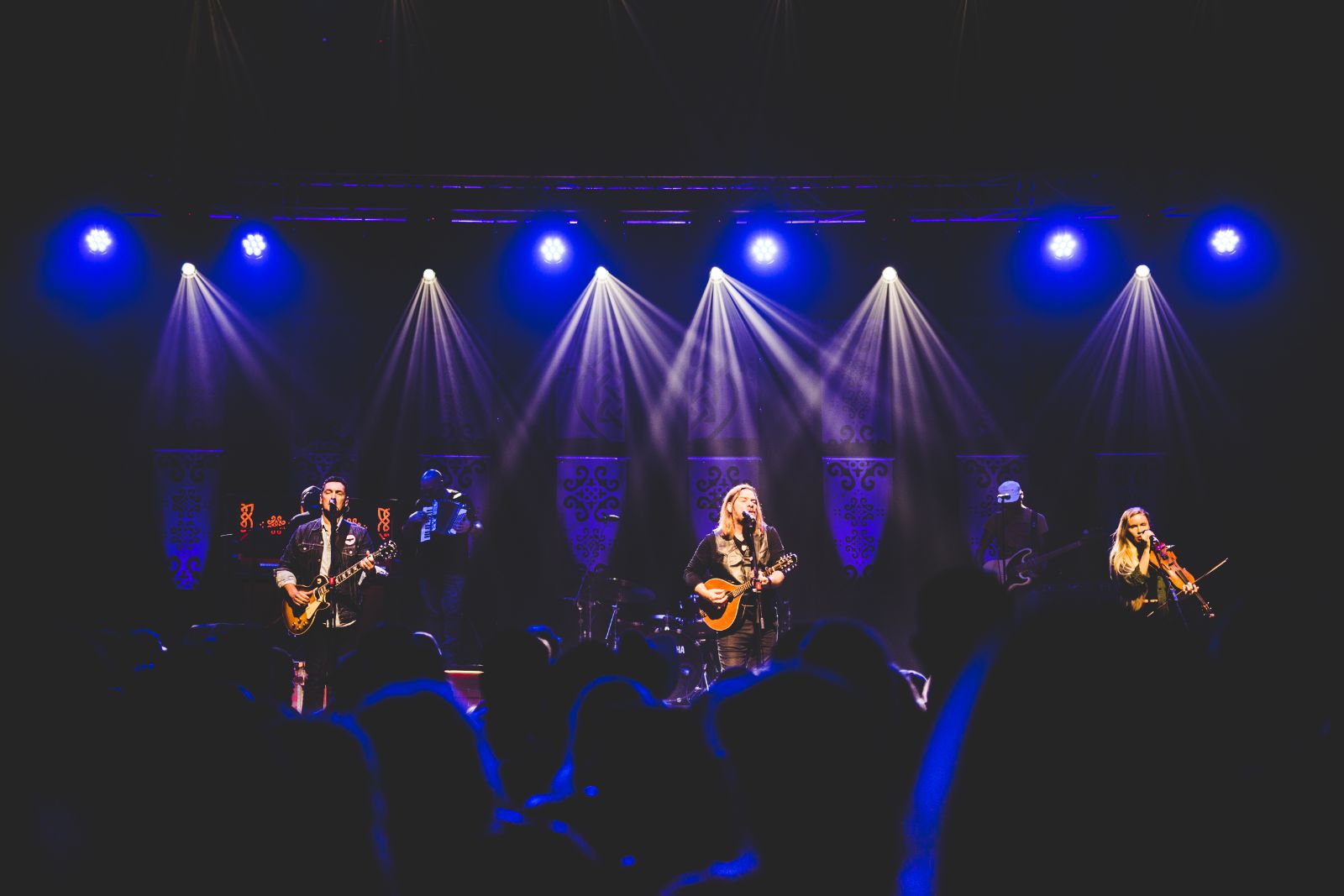
TC: Between lockdowns, you toured Eastern Canada, including a couple nights in Toronto, and you’re gearing up for a tour in the US. What’s it like to be back playing live?
AD: I’ve always been an appreciative guy, I think, and grateful, and I thought I knew how much playing live shows was a part of who I am, but it turns out that I didn’t. When it got taken away from us as a community and, for me, in particular, it’s a lot to miss. I’m cautious on how I talk about it because I don’t want to sound like my job or my days are any more important than anyone else’s. But just very practically speaking, if you work over there in that office building and you live over there, and your journey between that home and that place of work gets taken away for a month or a year, well that’s a certain amount of things to miss. If you’re like me and you spend your life in a 40-foot bus with 12 people who you do this special thing with, and every single night you’re in a different place with thousands of people and a different crowd, and every day is a different place and a different experience…that’s a lot of things, and people, and experiences that all of a sudden are not with you. I won’t ever take it for granted again, if I ever did.
TC: You rose to fame with Great Big Sea and now play with the Beautiful Beautiful Band. What do you look for in a band?
AD: Oh, they’re all just great friends of mine and musicians that I’ve admired for decades. My favourite thing about the Beautiful Beautiful Band gang is that they can play anything. I spent my young life playing in pub bands and cover bands doing rock n’ roll, and 50s music with my uncles. And then, of course, two decades playing Celtic music with Great Big Sea. And my own stuff wanders between country, rock, pop, Celtic, and traditional. So, it’s tricky to find players who are comfortable walking in between all those genres, and still be great people to hang with.
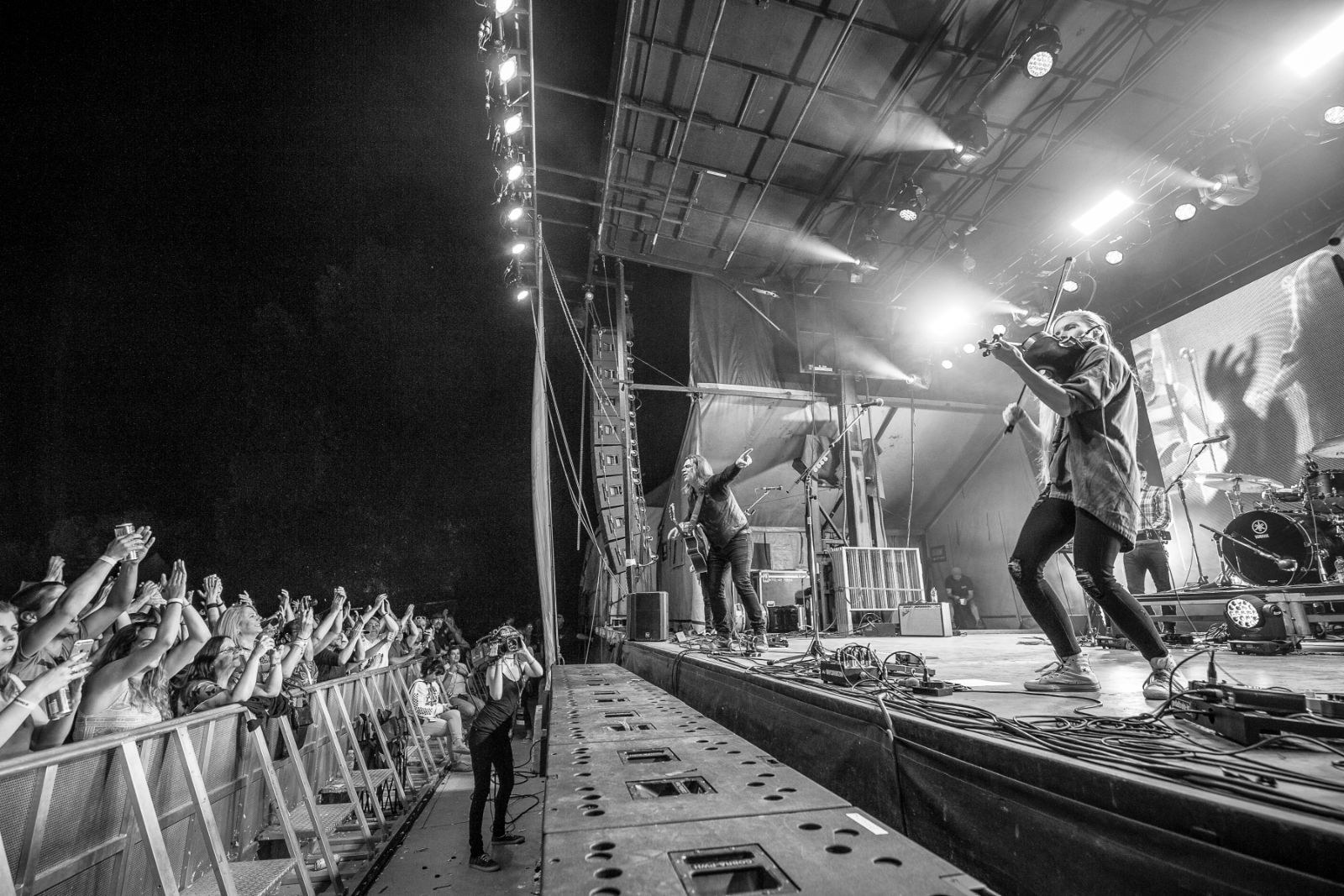
C: You performed last summer at the amphitheater with Blue Rodeo. The fiddle player, Kendel Carson, was a real highlight.
AD: On top of being a spectacular person, singer, and all-around musician, I don’t know anybody that’s better at their instrument than she is at hers. I first met Kendall when she was playing with bands from British Columbia…it’s just impossible not to notice her. I followed her career when she started playing the Spirit of the West, and I’ve seen her play with Elvis Costello, and her band Belle Star. She just elevates everything around her. I stand between her and Corey Tetford, the guitar player, every night and I have the best seat in the house.
C: You’re releasing a live album, Here Tonight. What can audiences expect?
AD: It’s a collection of recordings from over the last two or three years. We started recording our concerts in 2018 and, during the pandemic, plucked some of our favourite performances. We’re releasing them as a reminder to everyone about what we do when we get to do what we love the most.
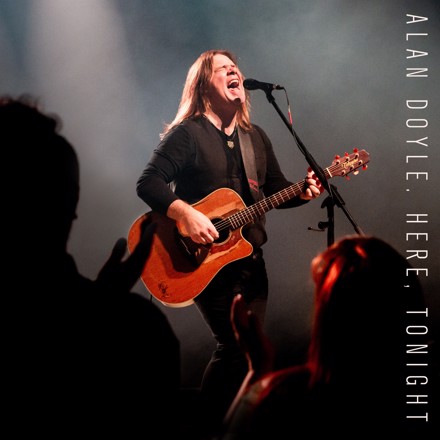
C: When you’re writing an album, are you writing songs with a live audience in mind?
AD: I’m guilty of writing songs for the concert, more than from the record. For better or for worse. I like making records, I love to be with my friends in the studio, I like producing music for other projects, but nothing trumps a live show and I am drawn primarily to write songs that I sing in front of people. My first instinct is always songs for the setlist, knowing the different kinds of songs you need to make a full and complete experience for people.
C: Do your setlists vary? How do you mix it up to keep it exciting for yourselves?
AD: There’s a half-dozen songs we play just about every night. They are the biggest in the concert and the ones people deserve and expect to get. But then we vary it a lot. And with the Beautiful Beautiful Band, we don’t play them the same every night. There are nights that Corey doesn’t play electric guitar on something, he might play banjo or ukulele. Or I might play bouzouki instead of guitar. I find that the content of the concert is about much more than the setlist. It’s about how to figure out in an instant how the night needs to go. That’s the challenge of being a front guy. But that’s part of the joy. Gord Downie once said to me that something needs to happen tonight that only happens tonight. And if that’s a good thing, that’s great, and if that’s a bad thing that’s fine, too. Why are people coming unless something happens tonight that only happens tonight? It’s a very rewarding thing to find a place and a circumstance where we can go on stage and just enjoy that time and not be too bothered if something is going to shag up or not. Everyone’s there to have a have that experience with you, so don’t play it safe. That’s way more an offence to the audience.
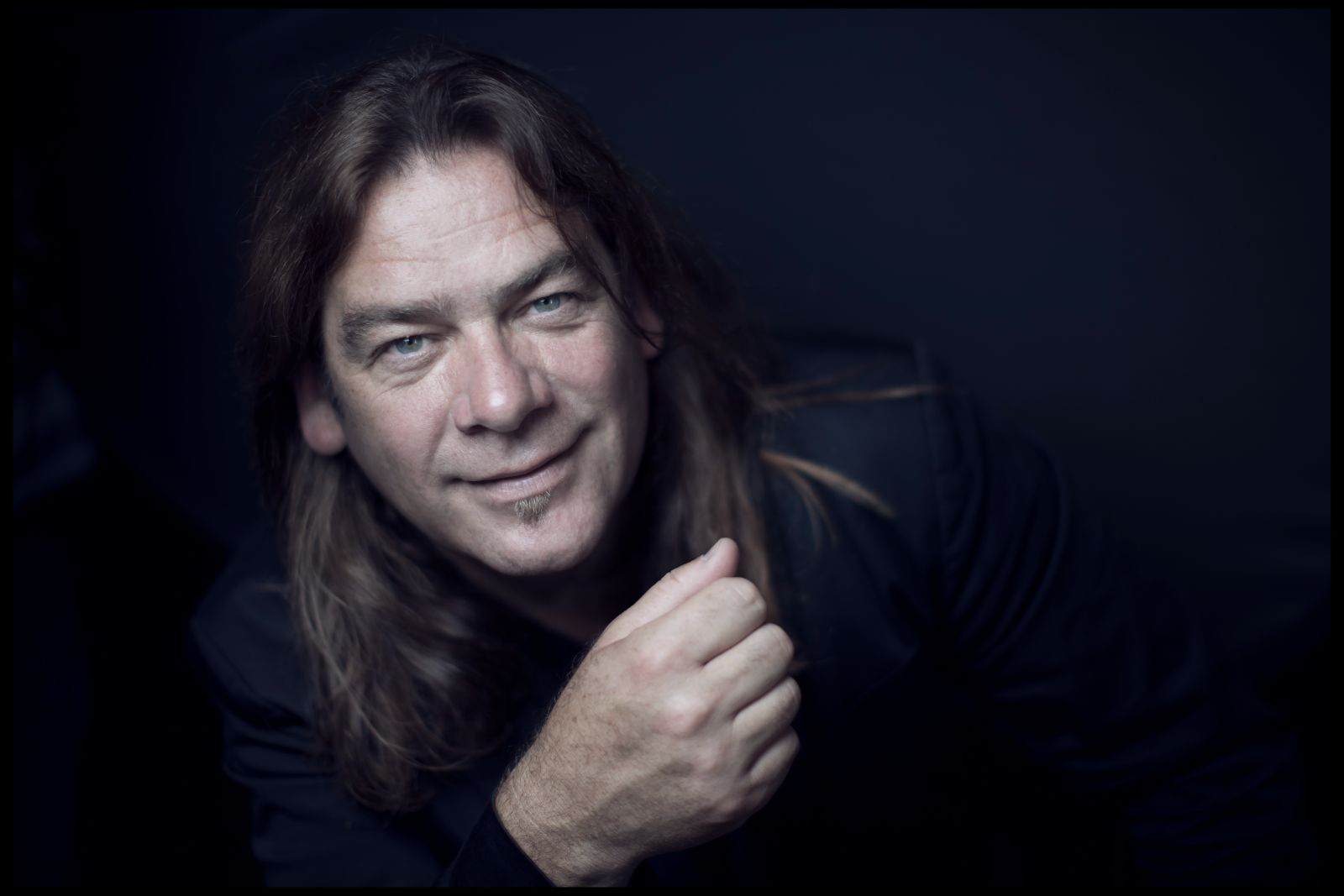
©David Howells 2017
www.davehowellsphoto.com
C: You’re also preparing to debut your new musical, Tell Tale Harbour. How did this come about?
AD: Adam Brazier, Creative Director for the Charlottetown Festival, saw the film The Grand Seduction and was aware of the original French version, as well. It started as a story in Quebec and was remade into an English movie starring Brendan Gleason. When he saw it, he decided it would make for a great musical comedy. It had all the elements. Adam, who has a long history with musical theatre, and Bob Foster, Music Director for the Festival and for Come From Away, teamed up. They asked if I would write some songs. So, I wrote a couple of tunes and they really liked them, so we kept going. Then Ed Rich, my neighbour, and a wonderful writer, I convinced Ed to become the head book writer. And Jillian Kylie who I went to high school with and is probably the most storied theatre director in the country right now, I convinced Jill to direct the show. It’s just been a wonderfully collaborative, challenging, enjoyable journey so far.
C: How is writing musical theatre different than writing for an album?
AD: With any kind of concert or record, those songs stand alone. You just need them to be good songs. In musical theatre that’s less than half of what they are required for. You need them to move the plot along, you need them to reveal something about the character…It’s like a Rubik’s Cube, and if you’re in charge of the song writing colour, let’s say the blue colour, you twist it a few times and go, hey, I got all the songs done, all the blue is done…and somebody from the story department says, yeah but you shagged up yellow and green. Every department is trying to help the other departments while still forwarding what they’re doing. I’m convinced musical theatre is the most difficult performative art form to get right.
C: You’re starring in it, too. Did you always have the acting bug?
AD: In high school I quickly turned my attention to playing in bands and music. I never spent time daydreaming about television or movies. About 10 years ago, I got a gig in a film because they needed an Irishy sounding guy who could play lute and medieval instruments. Shortly after, friends were starting a television series in Saint Johns called Republic of Doyle and they needed a hairy, bully-looking guy, so I played a recurring role. And now, this came up. But this was special. Tell Tale Harbour is a very important story and it feels especially poignant coming out of the pandemic. There’s this reassignment of value of rural places and the message of home is very important and special. I think we can finally give people a night out that’s going to be fun and meaningful.
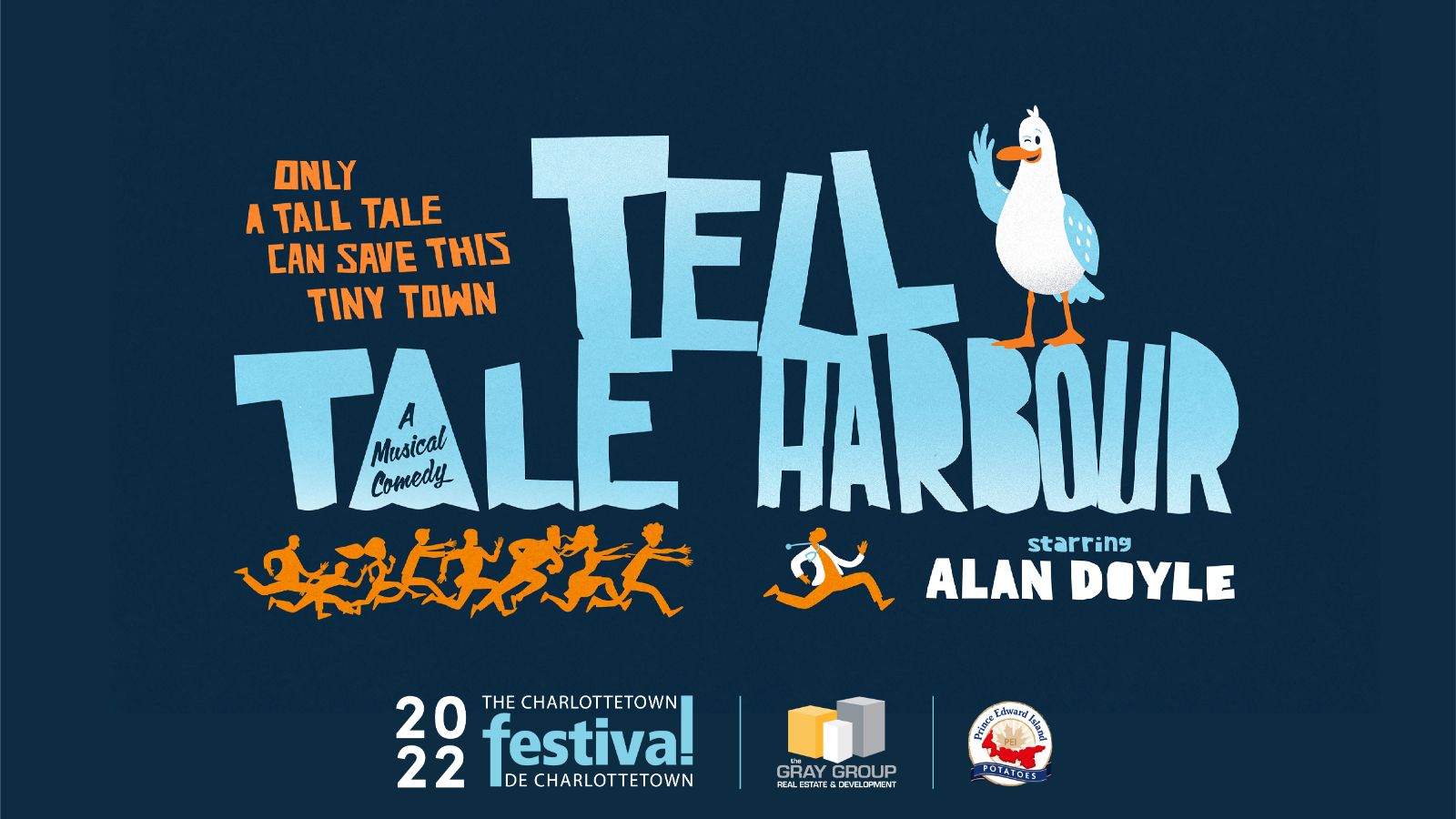
C: For those who haven’t been to the Charlottetown Festival, what can they can expect?
AD: I’ve gone there as a fan. For those who have never been to Charlottetown in the summertime, it is glorious. The city and the whole island are delightfully beautiful and charming. The nights out are excellent, the morning walks are brilliant. Then there’s all kinds of entertainment happening over the island and the centre of it is the Charlottetown Festival. There’s a reason why the most successful musical in Canadian history (Anne of Green Gables) has been playing there for 50 plus years. It’s just a spectacular geographical and cultural experience to see what happens there on any given day between May and October.
For more information on Alan Doyle, go to alandoyle.ca
For more information on the Charlottetown Festival, go to confederationcentre.com/theatre-info/the-charlottetown-festival
